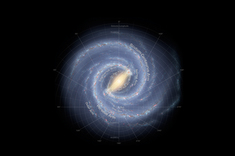Barbara Matthews took this image the first week of August from Donner Summit, a mountaintop on the northern Sierra Nevada range.
While scouting locations to watch the Perseids meteor shower earlier this year, an astrophotogrpaher was able to capture this stunning shot of the Milky Way , our home galaxy.
Barbara Matthews took this image the first week of August from Donner Summit, a mountaintop on the northern Sierra Nevada range. The summit is near Donner Pass, and both bear the name of the tragic story of California-bound emigrants who were forced to spend a winter on the east side of the mountains. Today, the location is a popular ski and lake resort. You can check out more amazing Milky Way photos by stargazers here .
“The dark skies near Donner Summit provided a great view of the Milky Way that night,” Matthews wrote in an email to Space.com.
The Milky Way, the galaxy containing our own solar system , is a barred spiral galaxy with roughly 400 billion stars. The stars, along with gas and dust, appear as a band of light in the sky when seen from Earth. The galaxy stretches between 100,000 to 120,000 light-years in diameter.

0 of 10 questions complete
Matthews used a Nikon D750 camera with Rokinon 14 mm lens at ISO 2500 f/2.8 with a 20 sec exposure.
You can see more amazing night sky photos by our readers in our astrophotography archive here .
Editor’s note: If you have an amazing skywatching photo you’d like to share it with Space.com and our news partners for a possible story or image gallery, please contact managing editor Tariq Malik at spacephotos@space.com.
Follow us @Spacedotcom , Facebook and Google+ . Original article on Space.com .

Comments are closed.